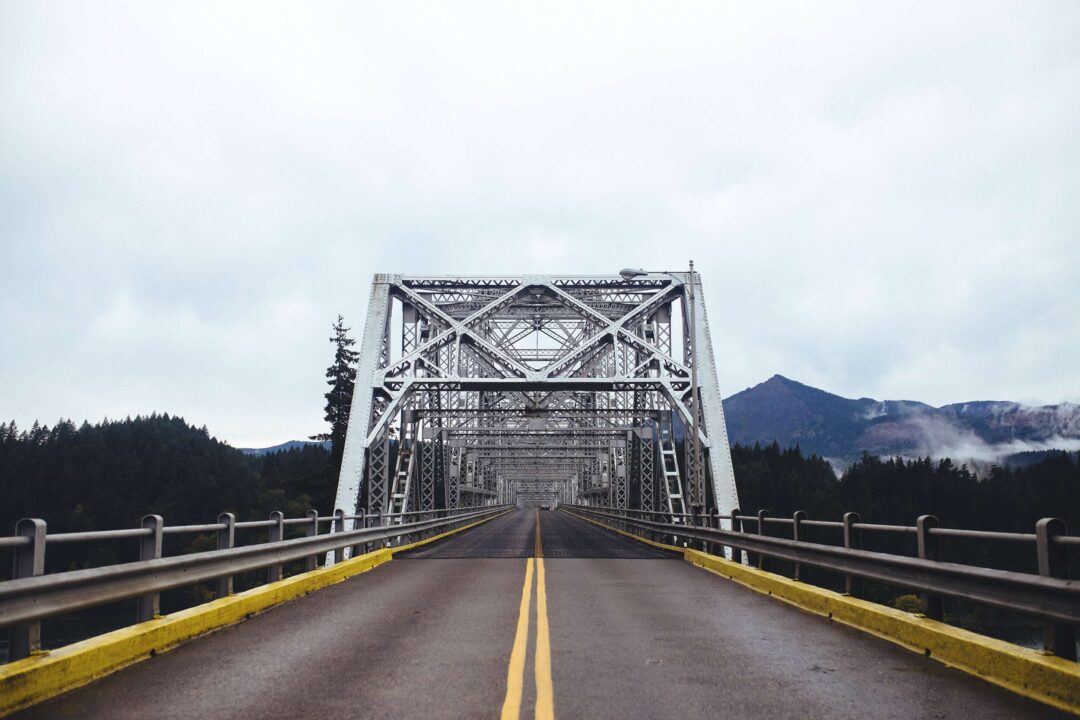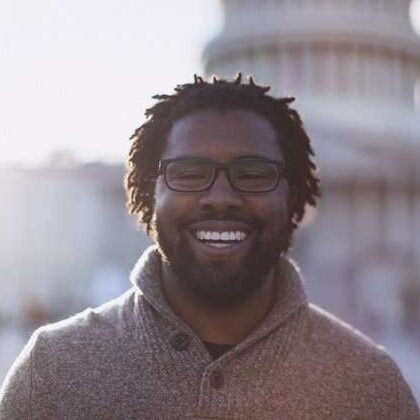Above my desk at work sits a painting of the Edmund Pettus Bridge, which carries U.S. Route 80 across the Alabama River in Selma, Alabama. The steel bridge, now a national landmark, was constructed in 1940. It’s named after Edmund Winston Pettus, a former Confederate general and U.S. senator. And it was there, on this bridge, that black voting rights marchers trekking from Selma to Montgomery were brutalized by law enforcement officials on March 7, 1965. This was a watershed moment of the Civil Rights Movement that became known as Bloody Sunday, which garnered national attention and media. Later that same year President Lyndon B. Johnson signed the Voting Rights Act of 1965, which guaranteed the right to vote to all black Americans, an act which occurred in no small part because some black Americans bled on a bridge. This is to say, bridges matter.
As Christians, we know this.
Ephesians 2 says there’s no longer a dividing wall between God and Christians and Christian Jews and Christian Gentiles. Through his work on Calvary, Christ has made one new man out of Jew and Gentile believers, two races once alienated from each other. We could think of a drawbridge that was permanently up between the two communities. Praise be to Him, Christ has permanently brought the bridge down! And so, as Ephesians 2:14 says, Christ himself is our peace.
Followers of Christ cannot add to our savior’s sacrifice. But we honor him and follow in his footsteps when we build bridges. We show that unity in Christ is bigger than any dividing wall this world tries to throw up. Jesus, himself, was the one who said, “Blessed are the peacemakers” (Matthew 5:9).
But remember that the Son of God, the bridge to heaven, the way, the truth and the life—was murdered. He promised that those who follow him can expect trouble in this life (John 16:33). And this truth haunted me recently. You see, I was giving a talk for a group of bridge-builders (i.e. ministers laboring for ethnic harmony in their ministries). As I worked on the address, I was struck anew with this thought: Reconciliation, or even progress, does not come without pain and sacrifice. It doesn’t come without staring evil in its ugly face and pressing on.
“And if I was a gambling man,” I told this group of bridge-builders, “I’d bet that some of you have felt that cost.” And if you’ve done any kind of bridge-building work, you have, too. To be clear, I don’t know (and I doubt) anyone reading this has resisted to the point of shedding our blood, but the truth is—being a bridge is hard isn’t it?
Bridges get stepped on from both directions. Bridges are the sites of beatings and suicides. Bridges are the first to freeze over when the bad weather hits. I trust you’ve been driving and seen the road sign: Bridge freezes before road.
I’m willing to bet some bridge-builders might be a little hardened, calloused, or discouraged because you’ve weathered some storms when it comes to building bridges across racial lines. I know I’ve certainly been there at times. It was Paul who said no temptation faces us except what’s common to man (1 Corinthians 10:13). My fellow bridge-builder, if you’re weary, let me encourage you to take your weariness to the Lord in prayer.
For “even youths shall faint and be weary, and young men shall fall exhausted; but they who wait for the Lord shall renew their strength; they shall mount up with wings like eagles; they shall run and not be weary; they shall walk and not faint” (Isaiah 40:30-31).
Typically, I end posts with three prayer requests, but I’m going to leave this post with one: Pray for weary-bridge builders to know the grace and strength of the Lord Jesus Christ, and to know it afresh.
If you’re looking for more bridge-building resources, you can listen to this interview I did with Trillia Newbell on the topic, or check out Reconciliation Blues, which to my knowledge originally came up with the metaphor of bridges getting walked on.
Whatever you do, take some time to think of those who walked on the Edmund Pettus Bridge 55 years ago today. As they did so, they themselves were walked on by injustice. But they were trampled on so others could take steps they couldn’t have imagined. I’m thankful for their enduring suffering, especially because it came at such great cost.












